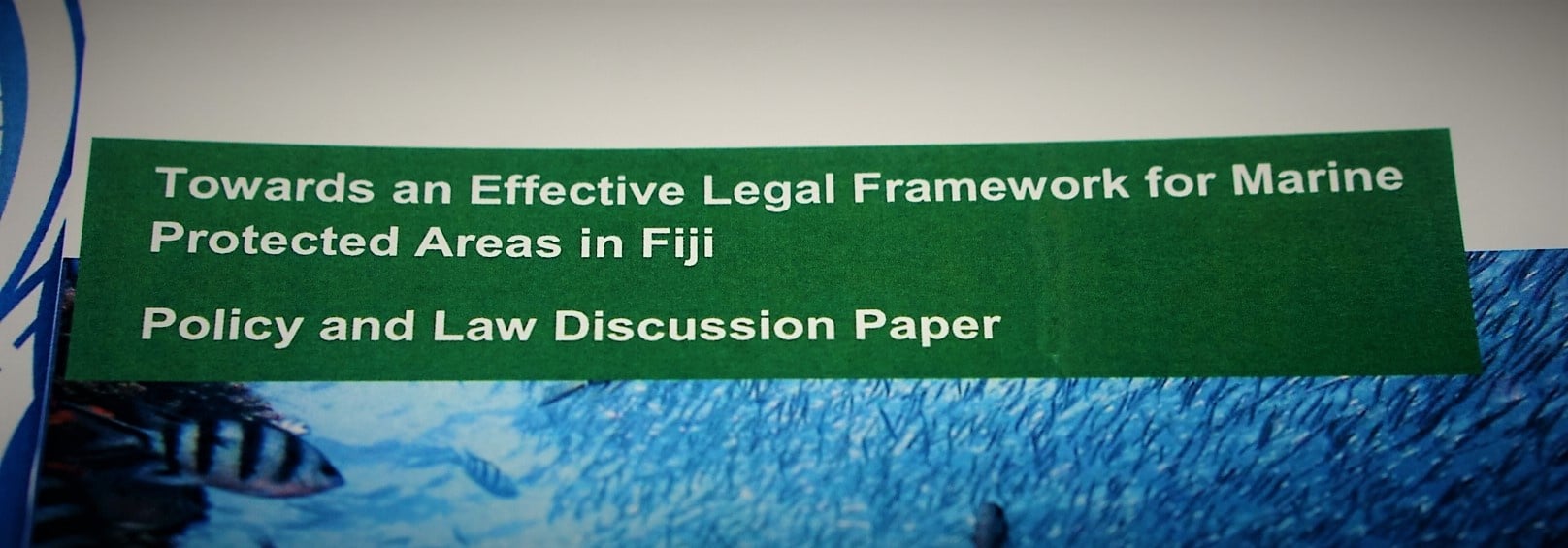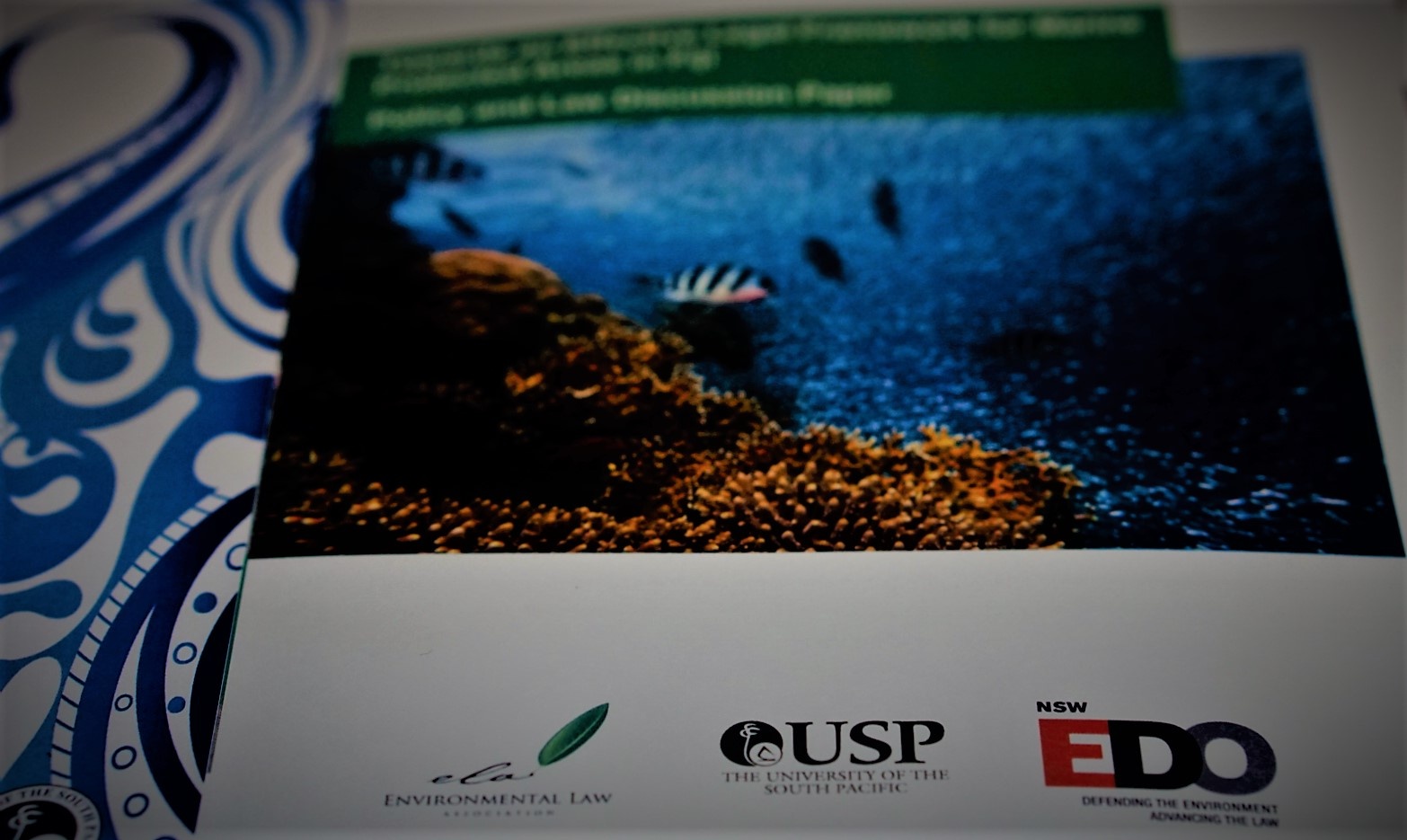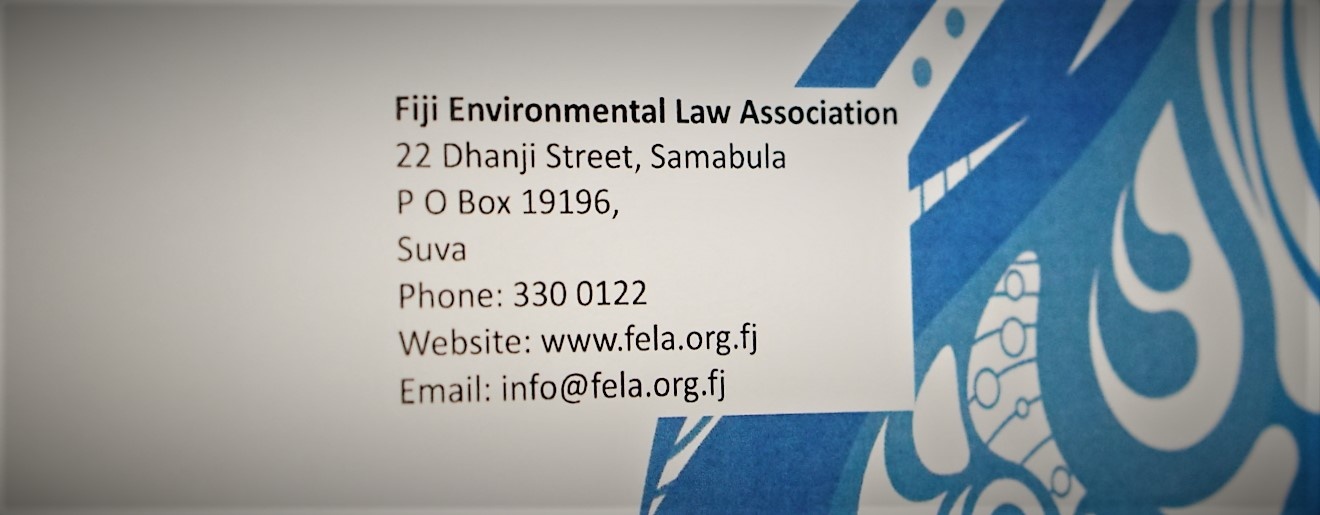The Fiji government has made a bold commitment to designate marine protected areas (MPAs) across 30% of its ocean spaces.
Given the well documented threats to all oceans and their resources it is a natural response to create protected areas that restrict the use of certain areas of ocean. The aims for greater protection may be varied and include to protect areas or species of special scientific interest, to preserve bio-diversity, for fisheries management reasons including for food security or to promote resilience to natural disasters and counter the effects of climate change. However, MPAs are designed to restrict the way a designated area of ocean is used, and because of this the designation of a MPA may alter, restrict, reduce, or remove pre-existing rights and commercial interests to use the marine area subject to the designation. As such the creation of MPAs may raise ethical questions and will definitely raise legal questions particularly in the area of administrative law. Last February we published this bulletin that looked at the designation of MPAs from an administrative law perspective.
In September 2017, the Fiji Environmental Law Association (FELA) together with EDO NSW and the University of the South Pacific (USP) has added to the MPA discussion through a study that considers the existing legal framework in Fiji for the creation of MPAs. This study is entitled “Towards an Effective Legal Framework for Marine Protected Areas In Fiji - a Policy and Law Discussion Paper” (ISBN 975-982-01-0965-0), and available now from the USP bookshop.

The FELA/EDO/USP discussion paper provides a context specific study of Fiji’s current legal framework for establishing MPAs in Fiji’s maritime or ocean areas. As well as providing an excellent evaluation of the strengths and weaknesses of Fiji's current legal framework for the creation of MPAs, the paper provides support for Fiji moving towards a more coordinated approach to MPA designation that will require updating the legal framework as a key part of that process.
The discussion paper supports a vision for a connected network of MPAs based on the best available science. This recognises that MPAs are not a simple tool that bans all types of activities in the designated areas. Rather, carefully considered and well planned MPAs may enable various levels of protection by using management and zoning plans, that promote different uses for MPAs rather than just limiting fishing activity. Further, as the discussion paper points out creating MPAs isn't enough, as they must be designed to be sustainable, accepted by ocean users or rights holders, and respected so that they are monitored and continue to be part of a solution to the sustainable management of Fiji's most important natural resources.
The discussion paper provides important recognition and detail relating to how, under Fiji’s current legislative framework MPAs may be designated under what are termed “Existing MPA mechanisms”. In Fiji, these mechanisms have already resulted in the creation of MPAs through:
- The Fiji Locally Managed Marine Areas (FLMMA) approach of establishing tabu areas as one of its fisheries management tools
- The use of section 9 of the Fisheries Act, 1942 (as amended) that enable MPAs to be created via Ministerial decision and Regulation.
- The granting of foreshore or “wet leases” pursuant to the State Land Act.
In addition, the discussion paper provides a detailed analysis of Fiji’s unique and complex law and governance context that includes, amongst other things, pre-existing property type fishing rights in traditional fishing areas (iqoliqoli).
In light of this context, the discussion paper points out that while the current approach may enable the legal designation of MPAs - there is a risk that an ad hoc approach to MPA designation that may fail to meet the IUCN goal of establishing a harmonious network of MPAs that interlink and maximise the ecological benefits of MPAs. The discussion paper therefore considers the 27 IUCN recommendations for effective MPAs and analyses how these may apply in the unique Fiji law and governance context.
This detailed and thoughtful approach means that FELA’s discussion paper provides a valuable contribution to the discourse around the best way to designate MPAs in the Fiji context and lends support to an inclusive, multi-disciplinary and multi stakeholder process to meet the considerable challenge that will lie ahead and that will take into account the many pre-existing interests in this process. While the paper recommends that legislative changes will be required, from a practical point of view this doesn’t mean that the work to designate MPAs under Existing MPA mechanisms should stop, only that in the future an effort should be made to integrate any existing MPAs with the ecological network that FELA supports.
It is this precisely this blend of detailed analysis and practical advice within Fiji's legal and governance context that makes this discussion paper such a valuable contribution to this important area of discussion. However, this is a complex area and it is always worth remembering that within Fiji's common law system administrative law principles relating to good decision making apply. In short, this emphasises the importance of due process and consultation with all affected and interested parties prior to the decision to designate a MPA under law.


Please note:
This legal bulletin is provided for general information purposes only and it is not, and should not be relied on as, legal advice.



